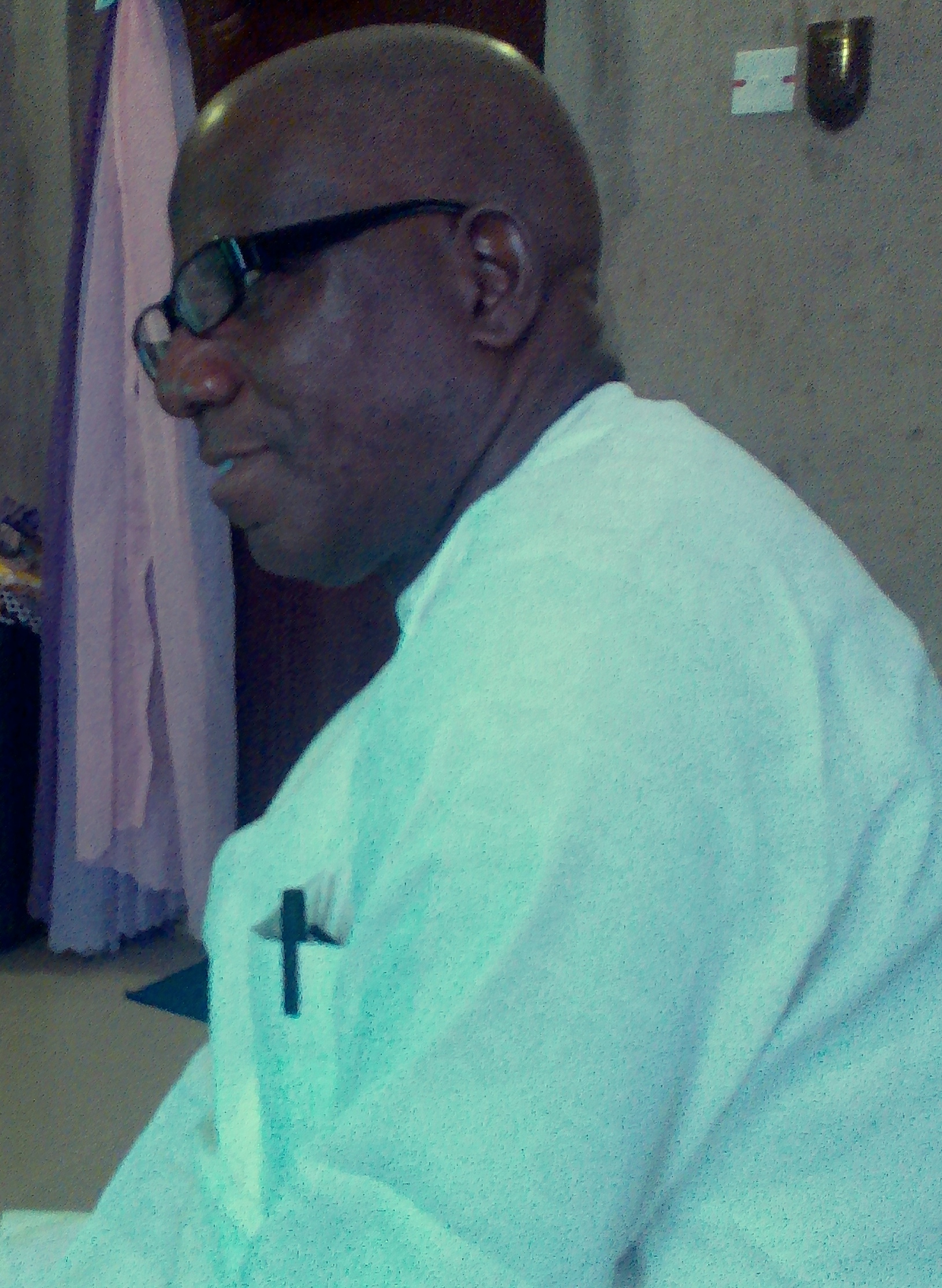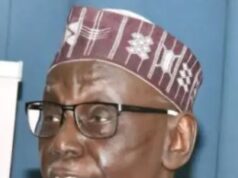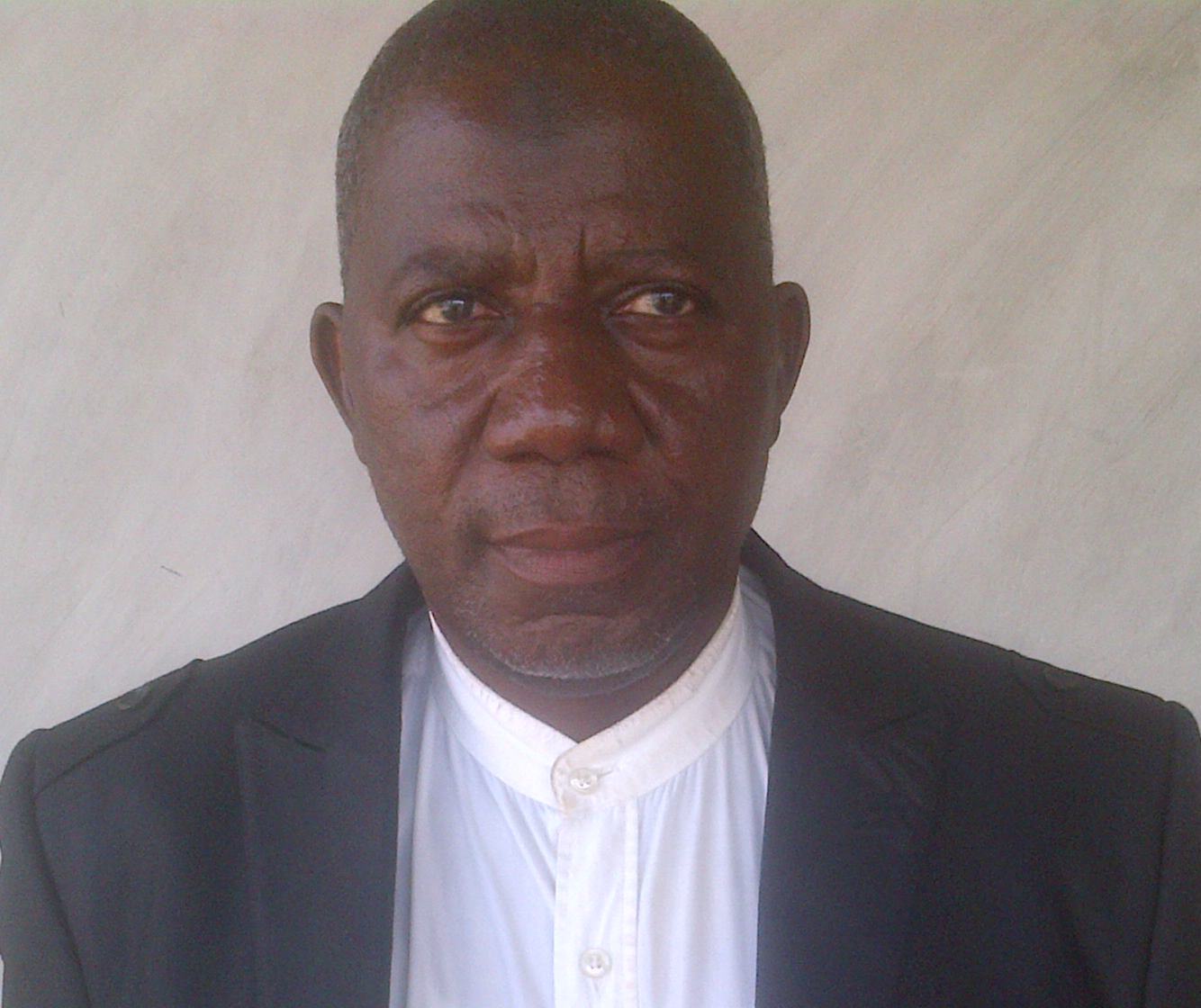
In more ways than one, Nigerian women have remained in the background where major politics is being played. This is despite the advancement not only in technology but also in global awareness.
From the time the first woman, arguably, Funmilayo Ransom-Kuti surfaced to fight against unfair taxation and oppressive colonial policies against women in 1946, there hasn’t been any significant increase in women participation in the Nigerian politics, passing through the first to the present fourth Republics.
In fact, Funmilayo Ransome-Kuti (1900–1978), who founded Abeokuta Women’s Union (AWU), mobilised thousands of women to protest, forcing the Alake of Egba to abdicate in 1949. She later became a strong member of the National Council of Nigeria and the Cameroons (NCNC). She advocated for women’s suffrage and political representation, paving the way for future women’s participation.
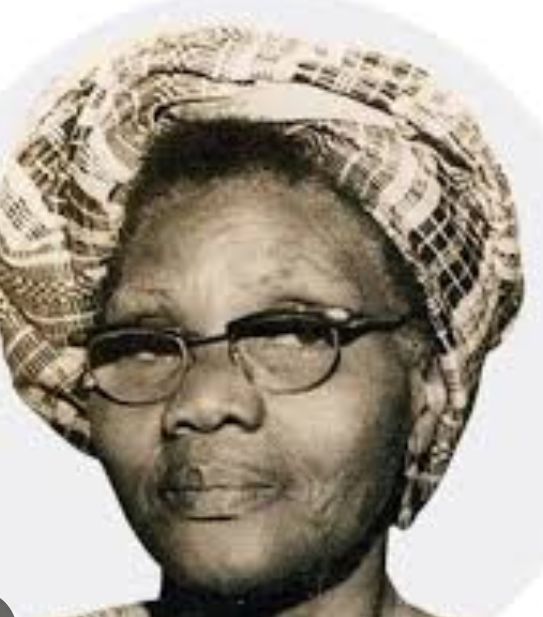 After Funmilayo was also Margaret Ekpo (1914–2006) who was a teacher, politician and activist from Aba. She founded Market Women Association in Aba to fight colonial injustices against women traders. She rose as a prominent member of NCNC, representing women’s interests.
After Funmilayo was also Margaret Ekpo (1914–2006) who was a teacher, politician and activist from Aba. She founded Market Women Association in Aba to fight colonial injustices against women traders. She rose as a prominent member of NCNC, representing women’s interests.
In 1953, she won election into the Eastern Regional House of Assembly, becoming one of the first female legislators in Nigeria. She mobilised women to engage in politics beyond traditional roles, integrating them into decision-making.
And in the Northern part of the country emerged Hajiya Gambo Sawaba (1933–2001). She a fearless politician and activist, who was a strong member of the Northern Element Progressive Union (NEPU) under late Malam Aminu Kano. NEPU came out to oppose feudalism, illiteracy and gender oppression in the North.
Gambo Sawaba defied the so-called norms and culture and got into serious political activism, resulting in her imprisonment many times, especially for advocating girl-child education and fighting child marriage.
She went all the way to encourage women to vote and contest positions despite sociocultural resistance.
One other woman participant in the murky water of politics was Chief (Mrs) Olufunmilayo Olopade, who engaged in local political structures in Western Nigeria. She mobilised women in local councils and market associations to demand participation in the 1950s regional political reforms, even as Chief (Mrs) Janet Mokelu, an Igbo politician contested and became a member of the Eastern House of Assembly. Mrs Janet Mokelu advocated education and health reforms for women and children in the Eastern Region as well as promoted girl-child education in the old Anambra area.
 The next other woman political activist was Wuraola Esan (1909–1985), who turned out to be the first female member of the Nigerian Senate (1960–1966). She was very active in Action Group (AG) politics in Western Nigeria. She advocated women’s rights, girl-child education and social welfare and served as an influential voice in constitutional development and women’s representation in Nigeria’s First Republic.
The next other woman political activist was Wuraola Esan (1909–1985), who turned out to be the first female member of the Nigerian Senate (1960–1966). She was very active in Action Group (AG) politics in Western Nigeria. She advocated women’s rights, girl-child education and social welfare and served as an influential voice in constitutional development and women’s representation in Nigeria’s First Republic.
These early female politicians actually engaged in anti-tax protests (e.g. Aba Women’s Riot, Abeokuta protests) and fought hard as members as well as leaders in national political parties (NCNC, NEPU, AG).
They fought against oppressive traditional and colonial structures. They contested elective positions at regional and national levels to influence policies.
Fast forward, what do we have in this fourth republic, specifically in the current dispensation?
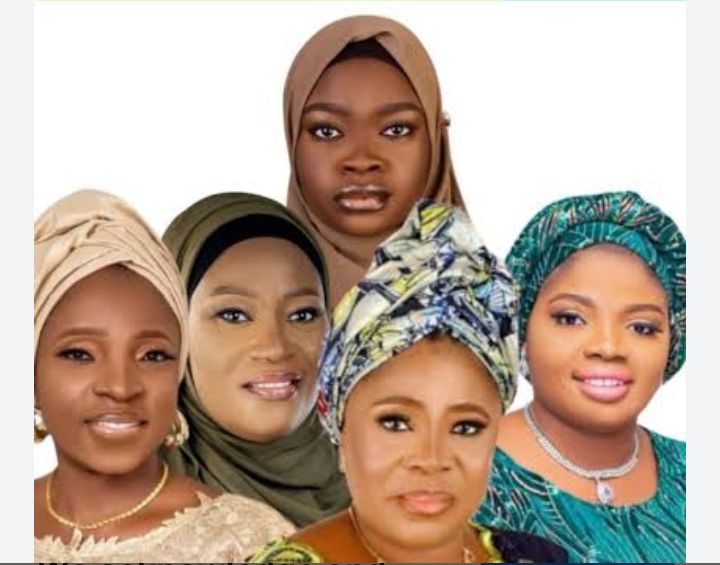 As a matter of fact, women representation in politics and leadership is so low that it can rightly be regarded as backwardness.
As a matter of fact, women representation in politics and leadership is so low that it can rightly be regarded as backwardness.
To think that currently only about, or even less than 10 percent of the elective offices at national and state levels are occupied by women.
For example, in the 10th National Assembly (2023), out of 469 seats (Senate and House of Representatives), only about 17 were held by women. There are only four in the Senate that is made up of 109 members.
There is no female governor elected in the 2023 general elections, though there were deputy governors.
At the political level, the only position women occupy is that of ‘women leader’ instead of core decision-making roles such as party chairpersons or national secretaries. Party structures are male-dominated, limiting women’s influence on internal party policies and candidate nominations.
Even in the area of appointment, the Federal Executive Council of President Bola Tinubu has about 20 percent female ministers, which of course, is below the 35 percent affirmative action target set in national gender policies.
The low participation of women has remained the product of patriarchal norms and cultural beliefs, which combined to discourage female political ambition. This is more pronounced in the northern part of the country, where women who dare to take part in politicking are regarded as loose and uncultured.
It is very appropriate to digress here to stress the point that the greatest stumbling block to women participation in politics and leadership position, especially in the northern Nigeria, is this misconceived Islamic point of view that women should not be seen, heard and lead, whereas it is purely a patriarchal interpretation combined with cultural tradition. Islam, when studied holistically, upholds dignity, justice and capability of any human being as the criteria for leadership, not gender alone. This should be seen of course, as a very sensitive and important topic requiring balanced and grounded analysis.
Many people in Northern Nigeria, including the learned ones, believe that Islam forbids women from political leadership, based on interpretations of certain Hadiths (Prophetic traditions).
The Hadith, narrated by Abu Bakra says: “Never will succeed such a nation as makes a woman their ruler.” (Bukhari 4425)
This Hadith was narrated in the context of the Persian Empire appointing a woman (daughter of Kisra) as ruler. Some scholars argue that it was a specific commentary on that situation, not a general eternal ruling.
But the Holy Qur’an does not categorically prohibit women from leadership. For instance, Allah in Surah An-Naml (27:23-44) of the Holy Qur’an, presents Queen of Sheba (Bilqis) as an intelligent, wise, consultative and just leader. He neither condemns her rule nor commands her removal. Instead, He mentions her good judgement and eventual acceptance of Islam.
The Holy Qur’an repeatedly emphasizes that both men and women are equally accountable for deeds (e.g. 33:35), indicating that leadership, in the form of enjoining good and forbidding evil is encouraged for all believers.
Some contemporary scholars maintain that women cannot be heads of state but can hold other leadership roles (ministers, parliamentarians, commissioners). Others argue that the Hadith is contextual and leadership should depend on competence, integrity and capability, not gender alone.
Again, in the Northern Nigeria, Islam is deeply intertwined with culture. But many barriers attributed to Islam are in fact cultural, including preference for male dominance in public affairs, early marriage affecting girls’ education, which reduces future leadership prospects and misinterpretation of religious texts by conservative scholars to reinforce patriarchal norms.
It is on record that Prophet Muhammad (SAW) consulted women, e.g. Umm Salma during Hudaybiyyah. Women like Aisha (RA) were scholars and public teachers of Hadith and Fiqh, guiding men and rulers.
The fact needs to be repeated that late Hajiya Gambo Sawaba defied both colonial and North’s cultural restrictions to lead politically in the mid-20th century.
Also women like late Hajiya Aisha Jummai Alhassan (popularly called Mama Taraba), Hajiya Aisha Dahiru Ahmed Binani, Hajiya Bint Masi Garba, Hajiya Khadija Bukar Abba, Hajiya Saudatu Sani, Hajiya Dr. Ramatu Aliyu Tijjani, Barrister Natasha Akpoti-Uduaghan, Ireti Kingigbe and others also defied the established norms and culture to fully participate in politics and leadership in the north, holding ministerial and senatorial positions as well as venturing into contesting governorship elections.
The greatest stumbling block is therefore, not Islam itself but patriarchal interpretations combined with cultural traditions. Islam, when studied holistically, upholds dignity, justice, and capability as the criteria for leadership, not gender alone.
On the inhibiting factors to women participation in politics and leadership in Nigeria are also the issues of violence, intimidation, and harassment during elections which, by their gentle nature, women cannot withstand.
Because Nigeria’s kind of politics is heavily monitised, a large chunk of women who may want to venture into politics are discouraged either by financial constraints or the deceptive nature inherent in the system. This is hinged mainly on lack of internal democracy in parties to ensure fair primaries for women, irrespective of how much they may spend to campaign.
With the world advancing towards the Artificial Intelligence era, from the internet revolution, it will be unfortunate if Nigerian women are, willy nilly, being kept in the background at every turn in the nation’s political and leadership journey.
There is therefore urgent need to legislate on, and enforce gender quota laws, mandating a minimum percentage of women in elective and appointive positions, which should be 35 percent as in National Gender Policy). Electoral Act should be amended to include, among others, clear affirmative action clauses.
Political parties should be made to abolish or reduce nomination fees for women aspirants, even as internal quota system should be created to reserve slots for female candidates in primaries.
There should be a deliberate policy too to strengthen women wings to have policy influence, not only mobilisation roles.
As a matter of fact, special provisions need to be put in place to train women in political strategy, campaign management and governance, besides the establishment of mentorship programs that should connect young women with experienced female politicians.
The system: government and political parties should set up what one would call “Women Political Empowerment Funds” supported by government and private sectors to fund female candidates’ campaigns.
Above all, national and international None Governmental Organizations (NGOs) need to intensify advocacy to change negative cultural perceptions of women leaders, especially in the northern part of the country. They can use schools, religious bodies and media to promote gender equality in leadership and governance.
Ways should be made to control electoral violence. There should be deliberate moves and policies to device stronger enforcement against political violence and harassment, which often deter women from participating.
To catch them young, policies should be initiated to educate girls from early stages on political leadership and civic rights for them to build interest and confidence.
For Northern Nigerian society in particular to harness its full human resource, both men and women should be empowered to serve in all spheres, including political leadership, within the moral and social framework of Islam.
There is need to re-educate communities in the north on Qur’anic principles of justice, consultation and capability; to encourage female education at all levels as a religious duty and to clarify Hadith interpretations within proper scholarly contexts rather than as blanket bans.
There is also the urgent need to promote inclusive Islamic scholarship where women scholars teach both men and women and to address cultural barriers, differentiating them from Islamic injunctions.
On the whole, it must be restated for emphasis that the present women’s participation in politics and governance has been discouraging despite constitutional guarantees of equality, and to improve requires legal quotas, party reforms, cultural change, financial support and targeted capacity development are indispensable and urgently so. This is essential for balanced development and inclusive governance towards achieving Nigeria’s commitments under the Sustainable Development Goals (SDG 5: Gender Equality).
Yusuf Ozi-Usman, nipr, is Editor-in-chief of Greenbarge Reporters online newspaper and Author of many books. He can be reached on oziusman@yahoo.com and Whatsapp +234-8037020244.



